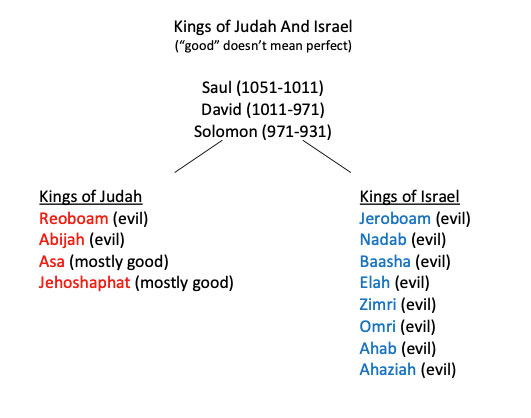Bible Study
Summit Views: 1 Kings
Purpose:
To show God’s promised blessing through David’s son Solomon and consequent judgment for his sin.
Gospel Connection:
God promised to establish the throne of one of David’s descendants forever. However, Solomon’s heart turned from the Lord and he led the nation into sin thereby forfeiting the blessings promised. The kingdom was torn from him, the nation divided and evil continued. However, by God’s grace, the promised blessing remained intact for a righteous king who would mediate the blessings of God. Jesus Christ was, is and will be this Messiah.
Summary Outline:
(1-2) Solomon’s Kingdom Established
(3-4) Solomon’s Great Wisdom and Reign
(5-10) House of the LORD Built and Solomon’s Vast Kingdom
(11:1-12:24) Solomon turns From the Lord and the Kingdom is Torn
(12:25-16:34) Kings of Judah and Israel
(17-19) Elijah the Prophet
(20-21) Ahab’s Evil, Repentance, and Judgment
(22) Judah and Israel Work Together
Summary message:
After being notified of an uprising and close to death, David transfers the kingship to his son Solomon. David relays the covenantal promises to him that he might continue to walk in faithfulness. Solomon started off well, humbly requesting wisdom to serve the Lord. The Lord granted his request giving him also great wealth. Solomon built his own house and the Lord’s house. Unfortunately, however Solomon’s heart turned from the Lord and the kingdom was torn and divided into two, Israel and Judah. Though there were a few bright spots, the kings who succeeded under each throne continued in the evil ways of their fathers, turning from the Lord and following other gods. The Lord used many prophets who boldly spoke truth to the kings, and specifically through the ministry of Elijah. Despite the evil kings, the Lord remained sovereign over the situation, judging them for their covenant unfaithfulness and yet remaining faithful and available to His people.
Date:
Events take place from the 10th to 9th century BC. The book was probably completed sometime after the fall of Jerusalem in 586 BC and no later than 540BC[1]
Historical context:
Divided Kingdom 931 BC (1 Kings 11-12)
Nations and their kings that interacted with God’s people:
(not exhaustive)
| King of Egypt Pharaoh (unnamed) Shishak |
King of Syria Rezin Ben-hadad |
King of Babylon Merodach-baladan Nebuchadnezzar Evil-merodach |
Key People/places/passages:
People: Adonijah, Solomon, Hiram, Queen of Sheba, Hadad the Edomite, Jeroboam, Rehoboam, Ahijah the prophet, Elijah; prophets of Baal, Naboth, Jezebel, Zedekiah and the 400 prophets, Micaiah
Places: Jerusalem, Samaria, The Temple; Mount Carmel and prophets of Baal
Passages: 2 Samuel 7; Leviticus 26; Deuteronomy 28; Psalm 30
Maps:
(coming soon)
Detailed Outline:
Solomon’s Kingdom Established (1-2)
Abishag Attends the King in His Old Age (1:1-4)
Adonijah Seeks the Throne (1:5-10)
Nathan’s Plan to Help Solomon (1:11-27)
Solomon is anointed King (1:28-40)
Adonijah Hears news of Solomon’s kingship and fears for his life (1:41-53)
David’s Final Words and Death (2:1-12)
Adonijah’s foolish request (2:13-25)
Abiathar the Priest expelled (2:26-27)
Joab and Shimei Die (2:28-46)
Solomon’s Great Wisdom and Reign (3-4)
Solomon asks for wisdom (3:1-15)
Solomon wisely gives justice (3:16-28)
Solomon’s officials (4:1-19)
Solomon’s dominion, provision and wisdom (4:20-34)
House of the LORD Built and Solomon’s Vast Kingdom (5-10)
Preparations for the Temple (5:1-18)
Solomon builds the temple (6:1-38)
Solomon builds his house (7:1-12)
Furnishings in the Temple (7:13-51)
Ark is moved into the Temple (8:1-11)
Solomon’s Prayer and Dedication (8:12-66)
The LORD Hears Solomon’s Prayer (9:1-9)
Solomon’s Works Projects and Workers (9:10-28)
Queen of Sheba Visits Solomon (10:1-13)
Solomon’s Wealth (10:14-29)
Solomon turns From the Lord and the Kingdom is Torn (11:1-12:24)
Solomon’s heart turns from the LORD (11:1-8)
The LORD tells Solomon’ the kingdom will be torn (11:9-43)
Rehoboam becomes King and foolishly leads (12:1-15)
The Kingdom Divides between Rehoboam (Judah) and Jeroboam (Israel)
Kings of Judah and Israel (12:25-16:34)
Jeroboam leads the people to Idol Worship (12:25-33)
A man of God confronts Jeroboam and Prophecies (13:1-10)
A Prophet Disobeys and Jeroboam’s evil continues (13:11-34)
Ahijah Prophecies against Jeroboam and Israel (14:1-20)
Rehoboam and Judah’s evil ways (14:21-31)
Abijam Reigns in Judah (15:1-7)
Asa Reigns in Judah (15:9-24)
Nadab Riegns in Israel but Murdered by Baasha (15:25-32)
Baash Reigns in Israel and Jehu Prophecies against Him (15:33-16:7)
Elah Reigns in Israel (16:8-14)
Zimri Reigns in Israel (16:15-20)
Omri Reigns in Israel (16:21-28)
Ahab Reigns in Israel (16:29-34)
Elijah the Prophet (17-19)
Elijah is fed by Ravens (17:1-6)
Elijah visits a widow and her flour and oil multiply (17:8-16)
Elijah raises the widow’s son from the dead (17:17-24)
Elijah confronts Ahab (18:1-19)
Elijah sets up the showdown on Mount Carmel (18:20-40)
The LORD brings Rain (18:41-46)
Elijah runs from Jezebel and an angel provides (19:1-8)
The LORD speaks to Elijah with a low whisper (19:9-18)
Elisha follows Elijah (19:19-21)
Ahab’s Evil, Repentance and Judgment (20-21)
Ben-hadab fighs against samaria (20:1-12)
A prophet directs Ahabe and Israel to victory over Ben-hadad (20:13-25)
Ahab defeats ben-hadad in the vally (20:26-34)
A prophecy against Ahab for releasing Ben –hadad (20:35-43)
Naboth’s vineyard and Jezebel’s evil plan (21:1-16)
Elijah’s prophecy against the House of Ahab (2:17-24)
Ahab repents and the Lord delays judgment (2:25-29)
Judah and Israel Work Together (22)
The kings of Judah and Israel unite against Syria (22:1-12)
Micaiah Prophecies differently than Zedekiah and the 400 prophets (22:13-28)
Ahab Dies in Battle disguised (22:29-40)
Jehoshaphat reigns in Judah (22:41-50)
Ahaziah reigns in Israel (22:51-53)
Bible Study Publications to Download
-
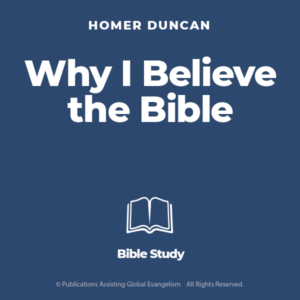
Why I Believe the Bible
$0.00 -
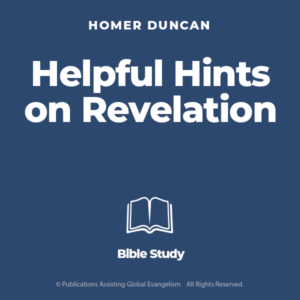
Helpful Hints on Revelation
$0.00 -
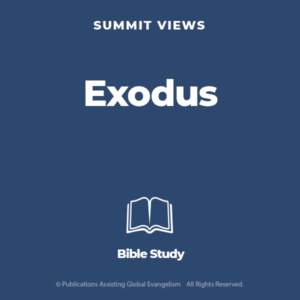
Summit Views: Exodus
$0.00 -
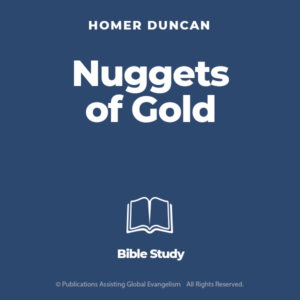
Nuggets of Gold
$0.00 -
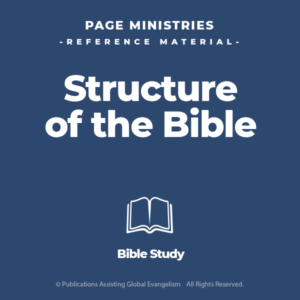
Structure of the Bible
$0.00 -

Summit Views: Genesis
$0.00 -
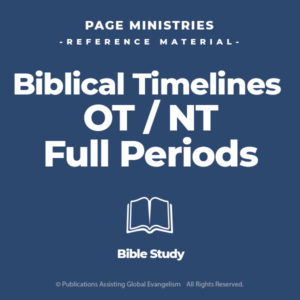
Biblical Timelines – OT/NT Full Periods
$0.00 -

Biblical Timelines – OT/NT Single Dates
$0.00 -
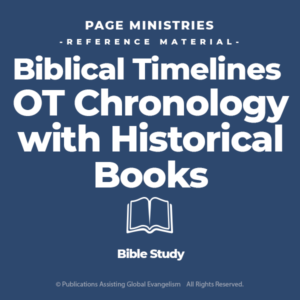
Biblical Timelines – OT Chronology with Historical Books
$0.00 -

Biblical Timelines – NT Chronology with Books
$0.00 -
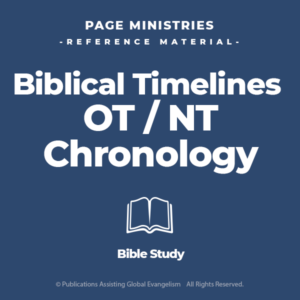
Biblical Timelines – OT/NT Chronology
$0.00 -
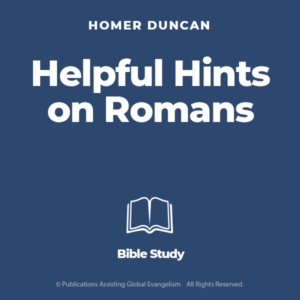
Helpful Hints on Romans
$0.00


